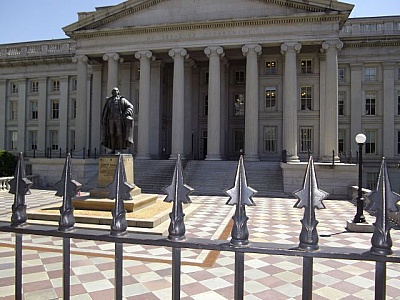 The U.S. Court of Appeals for the Eleventh Circuit recently found a debt collector liable under the Fair Debt Collection Practices Act (“FDCPA”) for collecting fees based on a percentage of the principal owed, when the underlying contract only permitted collection for actual costs incurred. Bradley v. Franklin Collection Serv., Inc. No. 10-1537, 2014 WL 23738 (11th Cir. Jan. 2, 2014). In enacting the FDCPA, Congress sought “to eliminate abusive debt collection practices by debt collectors, to insure that those debt collectors who refrain from using abusive debt collection practices are not competitively disadvantaged, and to promote consistent State action to protect consumers against debt collection abuses.” 15 U.S.C. § 1692(e). The debt collector in this case, Franklin Collection Service, Inc., assessed a 33 1/3% collection fee for each of the delinquent accounts it purchased before it began collection efforts. The district court granted Franklin’s motion for summary judgment as to the Plaintiffs’ FDCPA claim, which the 11th Circuit reversed.
The U.S. Court of Appeals for the Eleventh Circuit recently found a debt collector liable under the Fair Debt Collection Practices Act (“FDCPA”) for collecting fees based on a percentage of the principal owed, when the underlying contract only permitted collection for actual costs incurred. Bradley v. Franklin Collection Serv., Inc. No. 10-1537, 2014 WL 23738 (11th Cir. Jan. 2, 2014). In enacting the FDCPA, Congress sought “to eliminate abusive debt collection practices by debt collectors, to insure that those debt collectors who refrain from using abusive debt collection practices are not competitively disadvantaged, and to promote consistent State action to protect consumers against debt collection abuses.” 15 U.S.C. § 1692(e). The debt collector in this case, Franklin Collection Service, Inc., assessed a 33 1/3% collection fee for each of the delinquent accounts it purchased before it began collection efforts. The district court granted Franklin’s motion for summary judgment as to the Plaintiffs’ FDCPA claim, which the 11th Circuit reversed.
The court’s decision focused on Section 1692f of the FDCPA, which prohibits “collection of any amount…unless such amount is expressly authorized by the agreement creating the debt or permitted by law.” 15 U.S.C. § 1692f. The court found that the underlying contract permitted collection of the actual costs of collection, which would not include a percentage-based structure. While this decision does not completely ban percentage-based fees for debt collectors, it does limit this arrangement to express contractual agreements between the parties.

